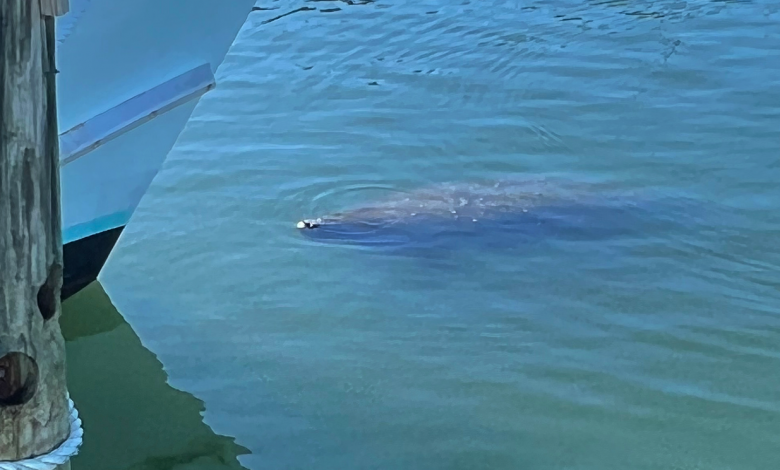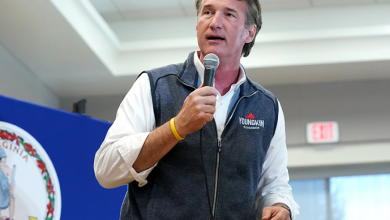Manatee spotted in Virginia Beach’s Rudee Inlet: ‘Seems to be happening more and more these days’

Robyn Spencer was waiting to board a dolphin watching boat with her family in Rudee Inlet Saturday morning when a large gray animal poked its nose out of the water.
“I’ve never seen one down here,” Spencer said. “I thought it was pretty cool.”
Spencer showed the picture to Alexis Rabon, researcher for Rudee Tours. Rabon and Capt. Skip Feller, reviewed dash camera footage from that morning.
Sure enough, the video also showed the manatee.
“It cruised right in front of the boat when we were loading,” Rabon said.
She notified the Virginia Aquarium’s Stranding Response Team and other mariners who use the inlet.
The manatee didn’t appear injured, said Alex Costidis, a senior scientist for the response team, who looked at the images.
“Right now we’re going to wait and see if it gets spotted in the same area again,” he said.
Manatees typically live in Florida, but some migrate north in the summer. They’ve been seen in Hampton Roads waters nearly every year for the last decade.
“It seems to be happening more and more these days,” Costidis said.
The aquarium notified the U.S. Fish and Wildlife Service for tracking purposes.
Manatees like warm, shallow water where the vegetation they feed on grows. They’re also attracted to fresh water sources often available at marinas where people hose off their boats.
An average size manatee is around 9- to 10-feet long and about 1,200 pounds.
Manatees were an endangered species until 2017, but the population is growing. Vessel impacts are the leading cause of human-induced mortalities in manatees.
“Unlike dolphins, they’re not quite as good at navigating around vessels,” he said.
Costidis recommends that boat captains wear polarized glasses to be able to see manatees more easily in murky water, he said.
People shouldn’t provide fresh water or food to a manatee.
“We need to reduce the reasons it sticks around, and if possible, try to keep it away from propellers,” Costidis said. “With all wildlife, we need to appreciate them from a distance.”




